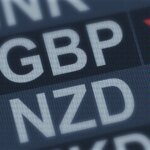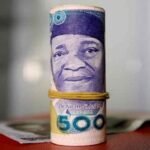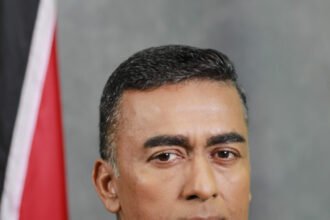
WASHINGTON DC – As Zimbabwe’s economic challenges continue to deepen, John Mushayavanhu, the country’s central bank governor, is among high-ranking officials attending the 2024 Annual Meetings of the International Monetary Fund (IMF) and the World Bank in Washington DC. The gathering, a crucial event in the global financial calendar, comes at a critical time for Zimbabwe, where its new local currency, the Zimbabwe Gold (ZiG), is facing significant instability and scrutiny.
The meetings in Washington DC bring together central bank governors, finance ministers, and leading economists from around the world, discussing global economic trends, financial stability, and development strategies for both advanced and emerging economies. Mushayavanhu’s presence underscores Zimbabwe’s efforts to re-engage with international financial institutions after decades of strained relations and limited support due to the country’s economic and political turmoil.
Local Currency Under Siege
Back in Zimbabwe, the introduction of the ZiG, a gold-backed digital currency, was initially hailed as an innovative approach to stabilize the country’s beleaguered economy. The Reserve Bank of Zimbabwe (RBZ) had hoped that the ZiG would curb inflation and restore confidence in the financial system. However, just a few months after its rollout, the currency is facing severe challenges, with rampant inflation and a lack of liquidity putting pressure on both businesses and ordinary citizens.
Zimbabwe’s economy has struggled with hyperinflation for over a decade, dating back to the catastrophic economic collapse in the 2000s, when the country’s original Zimbabwean dollar became essentially worthless. The introduction of the ZiG was seen as a bold attempt to reassert monetary sovereignty and move away from the reliance on the U.S. dollar, which had been used in the country for several years.
But the ZiG’s troubles have deepened as inflationary pressures mount. The currency has rapidly lost value against the U.S. dollar, and the informal parallel market, often more reflective of real economic conditions, has seen exchange rates soar, driving up prices of essential goods. The government’s failure to adequately provide sufficient gold reserves to back the ZiG has led to a sharp decline in public confidence in the currency.
IMF Engagement and External Pressure
At the IMF and World Bank meetings, Mushayavanhu is likely to face tough questions regarding Zimbabwe’s ongoing economic reforms and its ability to stabilize the national currency. Both institutions have a history of skepticism regarding Zimbabwe’s monetary policies, particularly given the government’s track record of overprinting money, leading to hyperinflation.
Zimbabwe has long sought financial support from the IMF and World Bank to revitalize its ailing economy, which has been ravaged by years of mismanagement, corruption, and economic sanctions imposed by Western powers. However, both the IMF and the World Bank have withheld major financial support, insisting on economic and political reforms, including fiscal discipline, anti-corruption measures, and respect for human rights.
Mushayavanhu’s participation in the Washington DC meetings could signal Zimbabwe’s intention to strengthen its engagement with international creditors. But analysts warn that Zimbabwe’s path to regaining financial credibility will not be easy, as the IMF and World Bank are likely to demand stringent conditions for any potential assistance. These institutions may press for tighter control over public spending, greater transparency in financial management, and a reduction of state intervention in the economy – particularly in sectors like agriculture and mining, which have been heavily influenced by government policy.
Domestic Response and Political Impact
At home, the worsening economic situation is having profound political implications. Zimbabweans are increasingly frustrated with the government’s inability to manage the economy effectively. High inflation, rising unemployment, and shortages of basic goods are rekindling memories of the economic crisis that led to the collapse of the Zimbabwean dollar in the late 2000s.
The opposition parties, particularly the Citizens Coalition for Change (CCC), have been vocal in their criticism of President Emmerson Mnangagwa’s administration, accusing it of failing to deliver on promises of economic revival and anti-corruption reforms. The former opposition party CCC leader Nelson Chamisa has called for a comprehensive overhaul of the country’s monetary policy, arguing that the government’s focus on the gold-backed ZiG is a distraction from deeper structural issues that require urgent attention.
Chamisa’s calls resonate with many Zimbabweans who are struggling to make ends meet. Prices of basic commodities such as bread, cooking oil, and fuel have skyrocketed, with businesses passing on the costs of the unstable currency to consumers. The result is a deteriorating standard of living for millions of Zimbabweans, who were already facing hardships due to years of economic mismanagement and drought-induced food shortages.
The political tensions are further exacerbated by the government’s efforts to suppress dissent. Recent months have seen a crackdown on activists, journalists, and opposition members, with many being arrested or harassed for speaking out against the government’s economic policies. These actions have drawn criticism from the international community, including the United Nations and various human rights organizations, adding another layer of complexity to Zimbabwe’s attempts to attract foreign investment and financial support.
Seeking Solutions
As the Washington meetings progress, there is hope that Mushayavanhu and other officials will secure technical support from the IMF or World Bank to address the currency crisis. Potential solutions could involve a comprehensive review of the country’s monetary framework, including more robust mechanisms to support the gold reserves backing the ZiG, and steps to foster confidence in Zimbabwe’s financial system.
In the past, Zimbabwe’s leaders have shown a tendency to rely on short-term fixes to address long-term structural problems, a strategy that has only exacerbated the country’s economic difficulties. The challenge now is for Mushayavanhu and his team to convince global financial leaders that Zimbabwe is serious about reforms and capable of managing its economy responsibly.
Regional Impact and Future Prospects
The situation in Zimbabwe is being closely watched by its neighbours in the Southern African Development Community (SADC), many of whom face their own economic challenges. The instability of Zimbabwe’s currency and economy could have ripple effects across the region, particularly in countries like South Africa and Mozambique, where large numbers of Zimbabwean migrants work and send remittances home.
With the IMF and World Bank meetings continuing through the week, the stakes are high for Mushayavanhu and his delegation. Failure to secure international support could further isolate Zimbabwe economically, while success could mark the beginning of a new chapter in the country’s troubled financial history. However, for the average Zimbabwean, the pressing question remains: how soon will they see relief from the current economic hardship?
As the world watches, the future of the ZiG and Zimbabwe’s broader economic recovery plan hangs in the balance. The outcome of these meetings in Washington could determine whether Zimbabwe can chart a new course toward stability or if it will continue to drift further into economic despair.




















